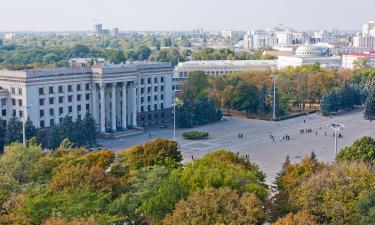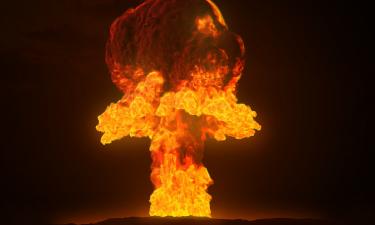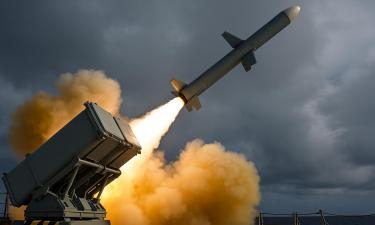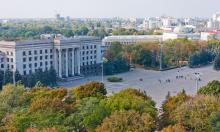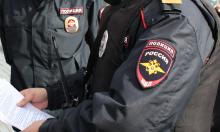Patrick Armstrong's "SITREP" Report on Russia and the CIS
PRAVDA.Ru's Consulting Editor Patrick Armstrong presents his "SITREP" report on Russia and the CIS
VTsIOM. The Centre for Public Opinion and Market Research (VTsIOM) is the oldest Russian opinion surveying company and has a strong reputation. But it's publicly owned and the director warned a couple of weeks ago that some politicians were dissatisfied with its findings and would move in a new board of directors, presumably to ensure that its polls gave the "correct" answers. The staff has pre-empted this attack and created a new company - VTsIOM-A - which, moving quickly, has taken over both websites (vciom-a.ru and russiavotes.ru). No one will now pay any attention to the other.
PRIVATISATION. The Presidential Administration head has just made enigmatic pronouncements on the privatisations of the 1990s in which a favoured few got the prizes. The results, he said would not be revised but specific cases would be investigated. Does he mean that "specific cases" will be "revised"? Is this a threat against the "oligarchs"? Or is it another confusing statement that doesn't really mean anything? His statement does little to reassure or clarify.
FEDERATION COUNCIL. The Russian constitution is silent about how members of the upper house are to be chosen and we have been through several variants already. First Yeltsin appointed the members, then there was a period in which they were the executive and legislative heads of the regions and now they are appointed by the regions. None of these arrangements has been entirely satisfactory and the Speaker, Sergey Mironov, has said he favours direct election and will introduce a bill to that effect next year after the presidential election.
LET THE REAL WAR BEGIN. Russia has four airborne divisions and an airborne brigade. This seems a rather disproportionate number but reductions have been successfully resisted by the Airborne Forces commander. But he has just retired and the possibility of another attack opens. It will provide another excuse to delay real military changes.
GLAZYEV. Sergey Glazyev's new party -- the Motherland National-Patriotic Union - has formally appeared. And it's heavy on the national-patriotic bit: disgruntled generals, super-nationalists, former Chekists, a former coup plotter and the former Central Bank chief headline the party. Again one wonders what Glazyev thinks he's doing. Such a party will bite into the Communist and Zhirinovskiy vote but can hardly be expected to get many new voters. If he's trying to create a social -democratic party, this seems to be a roundabout route to that goal.
CHECHNYA. The remaining deputies of the 1997 Chechen parliament (elected during the de facto independence period) have deposed Aslan Maskhadov as President of Chechnya. This is a bit formalistic although it clears away an obstacle to new elections. It is also an illustration of how Maskhadov has lost just about all support.
ASLAKHANOV. Aslanbek Aslakhanov, the Duma Deputy from Chechnya who just dropped out of the Presidential contest, has been appointed an assistant (pomoshnik) to Putin, apparently with responsibility for the North Caucasus. This could, of course, just be a move to sideline him. On the other hand, it might turn out to be an important position in which he can influence the settlement in Chechnya. It's too early to jump to conclusions.
BELARUS. The Union stumbles on but goes nowhere. The Russian Prime Minister has just said Russia will stop supplying gas at subsidised prices next year. Russia sells gas at US$29 a cubic metre and Belarus sells it to domestic consumers at US$70, using the difference to subsidise its (loss-making) industries. Meanwhile Putin and Lukashenka met at Sochi - Putin said nice, but vague, things while Lukashenka grumbled that Belarus wasn't getting much of a deal.
GEORGIAN TROUBLES. Georgia seems to have a spate of violent troubles. There is a security operation in Svanetia because of lawlessness; someone sabotaged the Borjomi mineral water facility (an important export for Georgia); there was an assassination attempt on the governor of Samtskhe-Djavakheti and a power line in western Georgia has been repeatedly sabotaged. Svanetia has been the scene of skirmishing with Abkhaz forces and the Svans have always done as they pleased. Samtskhe-Djavakheti includes the Armenian-occupied part of Georgia and while there has been no fighting there during this period of Georgian independence, there was in 1918-21. Georgia is very fragile and there is the possibility of another round of civil war as occurred ten years ago. This time, however, thanks to oil, other countries have interests there and could be drawn into the chaos.
Patrick Armstrong, Ottawa
Important Disclaimer: What is found above are personal views on Russia and Russia-related issues and do not reflect any opinions other than of the writer(s) associated with this private endeavor.
Subscribe to Pravda.Ru Telegram channel, Facebook, RSS!

